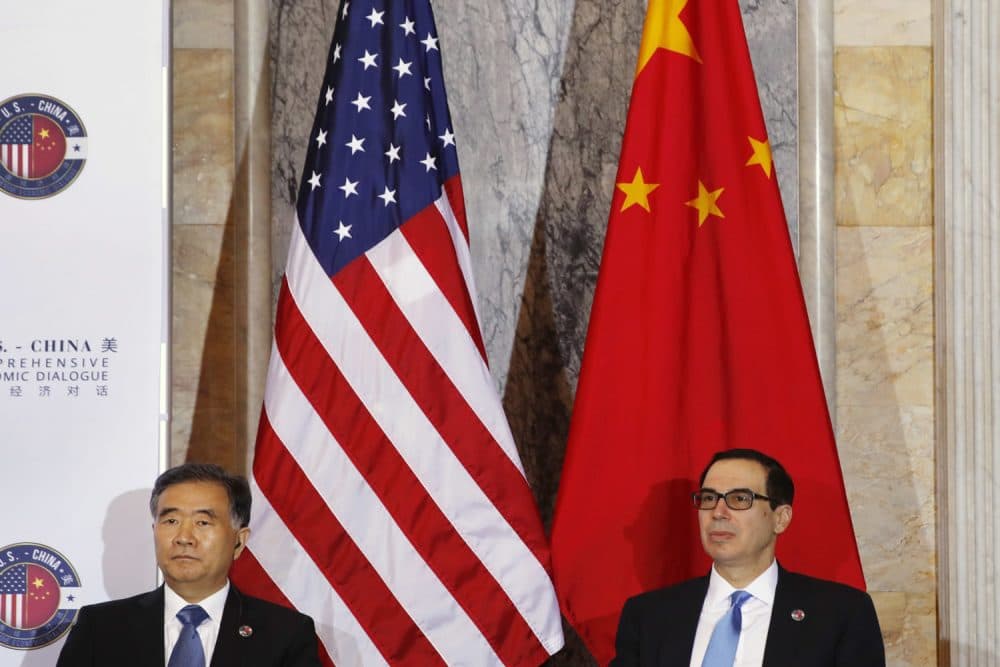Advertisement
What This Week's Talks Could Mean For U.S.-China Trade Relations

With David Folkenflik
Top American trade officials are set to negotiate in Beijing. How will China take Trump’s tough trade demands? We'll dive in.
Guests:
Keith Bradsher, economics reporter and Shanghai bureau chief at The New York Times. (@KeithBradsher)
Daniel Griswold, director of the Program on the American Economy and Globalization at George Mason University’s Mercatus Center. (@DanielGriswold)
Yun Sun, co-director of the East Asia Program and Director of the China Program at the Stimson Center. Sun specializes in Chinese foreign policy and U.S.-China relations.
From The Reading List:
The New York Times: "China Is Set to Take a Hard Line on Trump’s Trade Demands" — "Staking an assertive negotiating stance, China says it will refuse to discuss President Trump’s two toughest trade demands when American officials arrive in Beijing this week, potentially derailing the high-level talks.
The Chinese government is publicly calling for flexibility on both sides. But senior Beijing officials do not plan to discuss the two biggest requests that the Trump administration has made over the past several months, according to people involved in Chinese policymaking. Those include a mandatory $100 billion cut in America’s $375 billion annual trade deficit with China and curbs on Beijing’s $300 billion plan to bankroll the country’s industrial upgrade into advanced technologies like artificial intelligence, semiconductors, electric cars and commercial aircraft."
The Los Angeles Times: "There's no 'pot of gold' at the end of a trade war with China" (Op-ed) -- "The risks for Americans are clear and present. Although the people of China certainly will pay, so too will millions of American farmers, ranchers, manufacturing workers and consumer households. The most immediate casualties will be U.S. exporters. China bought $130 billion worth of U.S. goods in 2017, making it the third-largest market for our exports, behind only Canada and Mexico.
Nobody appreciates that reality more than American farmers. China is poised to slap tariffs on $12 billion of U.S. soybean exports, representing more than half of total U.S. exports of the crop. That will come on top of retaliatory duties China already has imposed on fruits, nuts and wine — actions that hit California producers especially hard."
President Trump has talked tough about the need to hold China’s feet to the fire –and he says he’s going to win big concessions over our trade deficit and intellectual property issues at formal talks kicking off in China this week— but the Chinese suggest the White House should prepare for reality. Part of that reality may be the increasing influence China has in world affairs…
This hour, On Point: the U.S. and China – frenemies on trade and the global scene.
- David Folkenflik
This program aired on May 2, 2018.